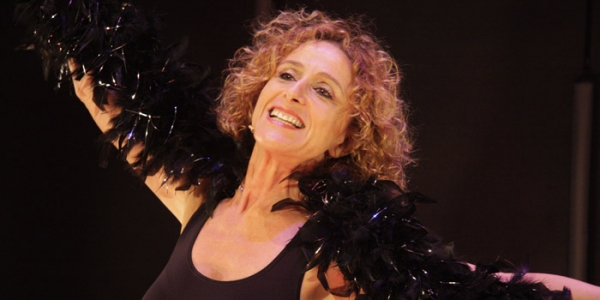“I am actually extending the show bit,” Herman says as we embark on a discussion of her plans for Hey World… this time around. “I did it a long time ago and I went everywhere and that was great but then I didn’t do it for a very long time. Then last year I was asked by the Melbourne Cabaret Festival to actually do a shortened version. So now I am redoing the show again to put it back into a normal format. In terms of repertoire I have used that to help chose the songs I will put in. It’s Streisand so you have to include the songs that people would expect but there is a range in there that has given me quite a sphere to choose other material.”
When something falls under the unfortunate description of a tribute show (don’t think tacky rock interpretations and the local RSL here), there is an assumption that the performer may attempt to become the subject, particularly when it is being performed by someone with such a strong background in musical theatre and, therefore, in the adoption of characters. “Oh yeah. I don’t do her at all,” she explains. “I didn’t want to put myself in that position. People do that and that is fine but I’m an artist in my own right and that was one of the things that I really took a long time to think about before I even developed the show because I never wanted to do her. I wanted to do a show about her as a performer, primarily. All of the stories that I tell are anecdotal and they either refer to me or to her or they refer to how we might connect or how we might not connect, as the case may be. The music is all hers and the story is about her but I tell the story through anecdotes and they all link up so that when people see the show they should work away understanding a bit more about her but understanding a bit about me as well.”
When approaching a show about Streisand and her heady career, the decision of what to include, and more importantly, what to omit in a show like this is a challenge. “The woman’s had a 50 year career so there is so much music to choose from,” she laughs. “The stuff that I really like of hers is her early stuff, the quirky funny stuff that she did, that, if you aren’t an avid Streisand fan, you may not know. I do stuff from Funny Girl and The Way We Were, which people expect, but I also get to go into her pop territory as well that she did in the ‘70s and ‘80s. It has given me a big range to tell stories that are relevant to her career and to my career…In terms of her being a female artist she is quite a maverick. In terms of opening up doors for other female artists in terms of producing, in terms of directing, in terms of writing. She really has been quite a maverick and there are lots of stories to tell.”
Given the fact the show incorporates so many different musical genres, something Herman’s career has been dominated by, I ask how she approaches some of the more pop-driven music without committing the great crimes of musical theatre saturation that the likes of Glee commit on a weekly basis. “My parallel career to theatre and everything else is that I have been a session singer for years and years and so it’s studio after studio,” she says. “Mostly I do voice-overs now. But as a session singer you sing anything from pop stuff to opera on the same day so it’s pushing gears all the way. I have always loved good music regardless of where it comes from. My biggest thing is that I tell stories through song so language is really important and ideas are really important. The thing that changes is that you have to understand stylistically how to change from one to another. You have to sing appropriately to the style you are in. I do want to tell stories, it doesn’t matter what style it is. Musically, you shift gears, but storytelling is storytelling.”
BY KRISSI WEISS

